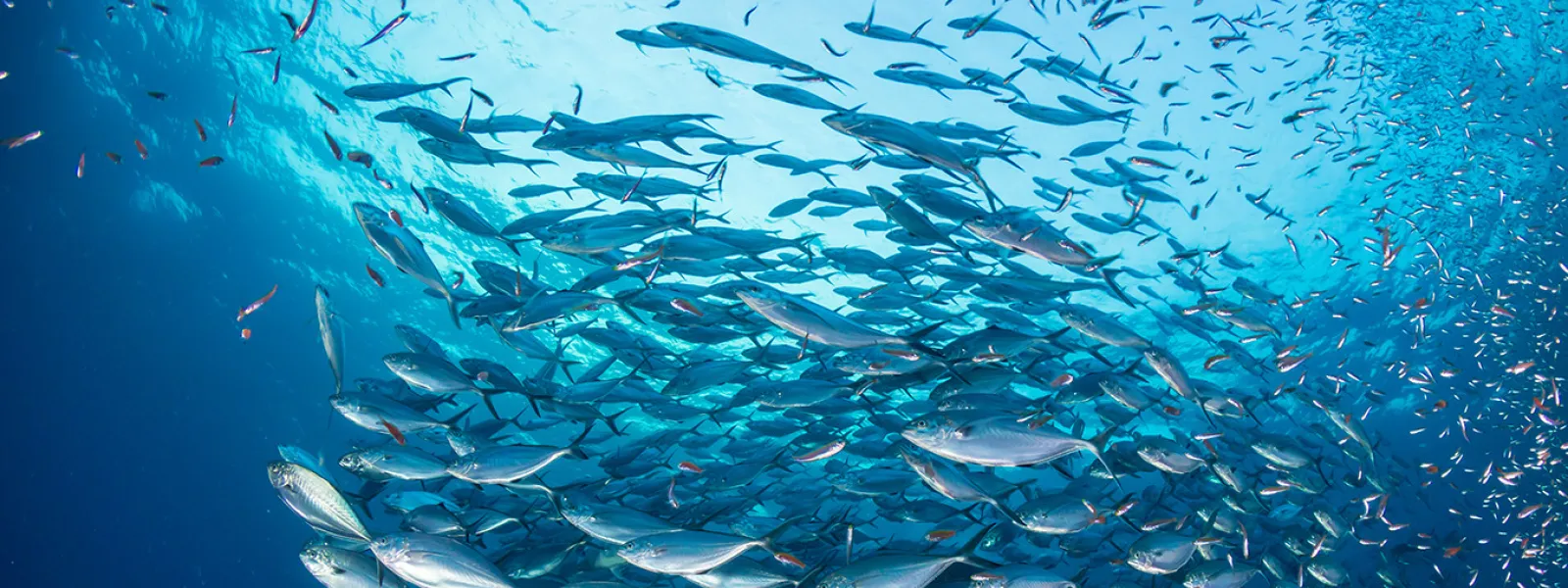
Project
ShutterstockTowards an end to subsidies that promote overfishing
Overfishing is one of the main problems for the health of our ocean. And the provision of negative subsidies to the fishing sector is one of the fundamental causes of overfishing.
Fishing subsidies are financial contributions, direct or indirect, that public entities grant to the industry.
Depending on their impacts, they can be beneficial when they promote the growth of fish stocks through conservation and fishery resource management tools. And they are considered negative or detrimental when they promote overfishing with support for, for example, increasing the catch capacity of a fishing fleet.
It is estimated that every year, governments spend approximately 22 billion dollars in negative subsidies to compensate costs for fuel, fishing gear and vessel improvements, among others.
Recent data show that, as a result of this support, 63% of fish stocks worldwide must be rebuilt and 34% are fished at "biologically unsustainable" levels.
Although negotiations on fisheries subsidies, within the framework of the World Trade Organization, officially began in 2001, it was not until the 2017 WTO Ministerial Conference that countries committed to taking action to reach an agreement.
This finally happened in June 2022, when member countries of the World Trade Organization reached, after more than two decades, a binding agreement to curb some harmful fisheries subsidies. It represents a fundamental step toward achieving the effective management of our fisheries resources, as well as toward ensuring global food security and the livelihoods of coastal communities.
The agreement reached at the 12th WTO Ministerial Conference provides for the creation of a global framework to reduce subsidies for illegal, unreported and unregulated fishing; subsidies for fishing overexploited stocks; and subsidies for vessels fishing on the unregulated high seas. It also includes measures aimed at greater transparency and accountability in the way governments support their fisheries sector.
The countries agreed to continue negotiating rules to curb other harmful subsidies, such as those that promote fishing in other countries' waters, overfishing and the overcapacity of a fleet to catch more fish than is sustainable.
If we want to have abundant and healthy fishery resources, it is time to change the way we have conceived fishing until now. We must focus our efforts on creating models of fishery use that allow for long-term conservation.
Partners:
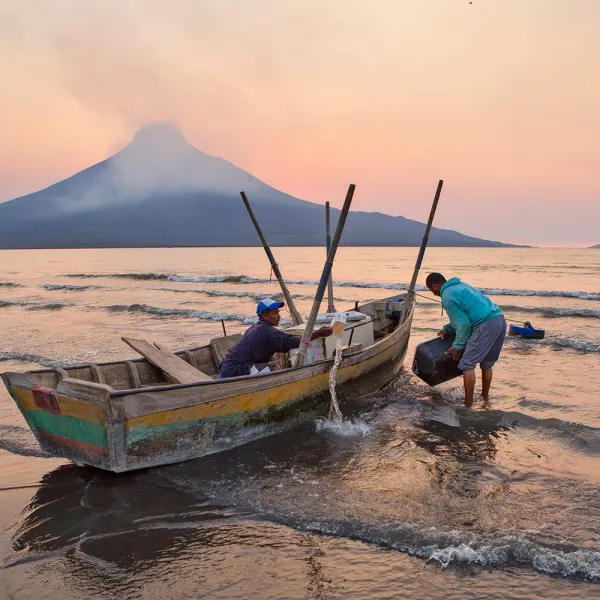
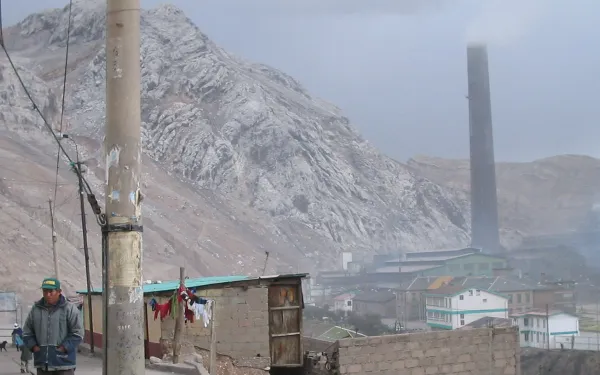
IACHR urges Peru to protect 14 additional people affected by pollution in La Oroya
The Commission did so by extending the precautionary measures originally granted in 2007. The decision arrives six years after it was requested, and confirms the severity of health deterioration in La Oroya. It also confirms that the life and integrity of affected people are at risk, and require urgent and adequate protection by the Peruvian State. Washington DC, USA. The Inter-American Commission on Human Rights (IACHR) urged the Peruvian government to protect the life and integrity of 14 additional people affected by toxic pollution in the city of La Oroya. They join the 65 people already protected by precautionary measures granted by the international body in 2007. The decision reaffirms that the health of the beneficiaries has deteriorated severely, they continue to be at risk, and their government must provide prompt and adequate care. The Interamerican Association of Environmental Defense (AIDA)—together with the Asociación Pro Derechos Humanos (APRODEH), the Centro de Derechos Humanos y Ambiente (CEDHA) and Earthjustice—represents the victims who benefit from the precautionary measures before the Commission. We express our satisfaction with the Commission’s decision, which arrives six years after it was originally requested. A metal smelter operated by Doe Run Peru is the source of the heavy metal contamination in La Oroya. The Commission has established that the lack of integral and specialized medical care, as well as health deterioration over time, could affect the right to life and integrity of the beneficiaries of the precautionary measures, which now number 79. “The extension of the precautionary measures reaffirms the urgent and serious situation threatening the life and integrity of the people of La Oroya. We hope the State fully complies with the provisions in favor of all of the beneficiaries, providing them with adequate and specialized medical attention,” said María José Veramendi Villa, AIDA attorney. The Commission’s decision states that the government of Peru must conduct the medical evaluations necessary to determine the levels of lead, cadmium and arsenic in the blood of affected people, in order to provide them with appropriate medical care, in accordance with international standards. The government must also report on the actions taken to investigate the facts that led to the extension of the precautionary measures, in order to avoid their repetition. Our case on the human rights violations committed against the affected people remains pending the final decision of the Commission. AIDA and APRODEH expect that the report will hold the Peruvian government responsible for said violations.
Read more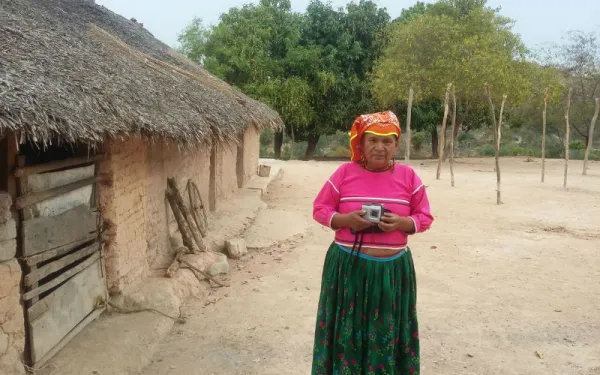
Marcelina, the voice of the San Pedro Mezquital
At 57 years old, Marcelina López has a very active life. She sews her own clothes, makes beautiful jewelry, raises chickens, sells eggs, cooks, is a midwife and organizes the women of her community; all while faithfully conserving her traditions, those of the indigenous Wixárika people. Perhaps what distinguishes Marcelina most is her great character and conviction, qualities that have rooted her deeply in a grand cause: the defense of Mexico’s San Pedro Mezquital River, threatened by Las Cruces Dam. At AIDA we’re deeply moved by the commitment of Marcelina and honored to be part of the same fight. Just like her, we want the San Pedro—the only free-flowing river left in the western Sierra Madre Mountains—to run free. We’ve been inspired to know more about this incredible woman, and to understand why she does what she does. Colors of the Sierra Madre Marcelina lives in a house made of mud, built high upon a hill, in a small community in the state of Nayarit. To go anywhere from her house, she has to walk an hour and a half through the mountains. She travels everywhere on foot. There’s no doubt Marcelina is a special woman. Everyone in the region knows her; she is unmistakable. She has the look of a wise indigenous woman, the bright colors of her clothes equal only to those of the beaded necklaces she wears each day. She herself colors the beads; they are a symbol of the importance of her culture. She often wears a head wrap, which gives her an air of certainty and connotes rich ancestral wisdom. Though her profound presence can seem serious, Marcelina is a very sweet and loving person. Over the years, Marcelina has not been immune to violence and machismo, in its many expressions. She has had to fight to have her voice recognized in agrarian assemblies, and, for a time, had to provide for her children as a single mother. Her people, the Wixárika—known in Spanish as the Huicholes—are a majority group in Nayarit. They live in the western central region of Mexico, in the Sierra Madre Mountains; they primarily populate the states of Nayarit and Jalisco, but are also represented in parts of Durange and Zacatecas. In their native tongue, belonging to the family of Uto-Aztecan languages, wixárika means “people.” For the Wixárika, ceremonies are fundamental to the social wellbeing of the group. It is through these sacred rituals that they ask for rain, give thanks for the harvest, bless its fruits, and pray for health and vitality. Their ceremonies are, in short, where they celebrate and honor life. For Marcelina and her people, the San Pedro Mezquital is the pillar of social, spiritual and economic life. Its waters support their subsistence farming and fishing activities; 14 of their sacred sites are spread along its length. What’s more, the river feeds Marismas Nacionales, one of the most important mangrove forests in all of Mexico. This important source of life and culture is threatened now by the construction of Las Cruces Dam, a project being proposed by the Federal Electricity Commission. The megaproject would be located 65 kilometers north of the city of Tepic. It would have a capacity of 240 MW, divided between three generators. The dam would effectively stand as a 188-meter high concrete curtain. Speaking for the river In her excellent Spanish, accented with clear links to her indigenous roots, Marcelina has on various occasions stood before microphones and cameras to defend the San Pedro River and the lives of those who depend upon it. “The construction of this dam will have a severe impact on our culture and our spirituality. Many of our ceremonial centers are located along this river,” she explained. “It is there that we leave our offerings of thanks; it there that we pray, not just for our own community, but for the entire world.” When asked why she decided to be part of the movement in defense of the San Pedro, Marcelina responded: “As an indigenous women, I’m hurt that they want to take away our river. What’s happening? Why didn’t they consult us indigenous people [about the project]? Where is their respect? Why are we treated this way?” Her questions remain unanswered. The construction of Las Cruces will have negative impacts on the land, its natural resources, and the way of life of the indigenous people who depend upon it. The dam will flood 4,506 hectares; the town of San Blasito, sections of communal land, at least 14 sacred sites, and one ceremonial center, will all be under water. “We are the roots of Mexico,” Marcelina concluded. “It’s not easy for us to change our sacred sites; they’re like a tree rooted deep in the soil. Down these rivers run the blood of our gods.”
Read more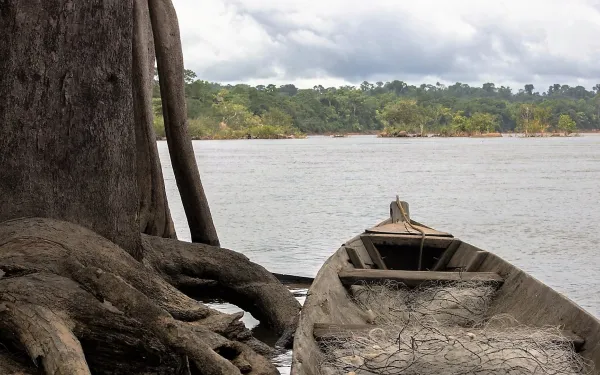
Brazil inaugurated Belo Monte: There’s nothing to celebrate!
The Brazilian government grandly inaugurated the Belo Monte Dam, which sits on the Xingu River in the midst of the Amazon. As an organization that legally represents affected indigenous and riverine communities, as well as residents of the city of Altamira, we consider there to be no reason to celebrate. The dam has been built by overlooking national and international standards that safeguard the environment and human rights. GET TO KNOW MORE about this injustice through the words of our senior attorney María José Veramendi Villa!
Read more